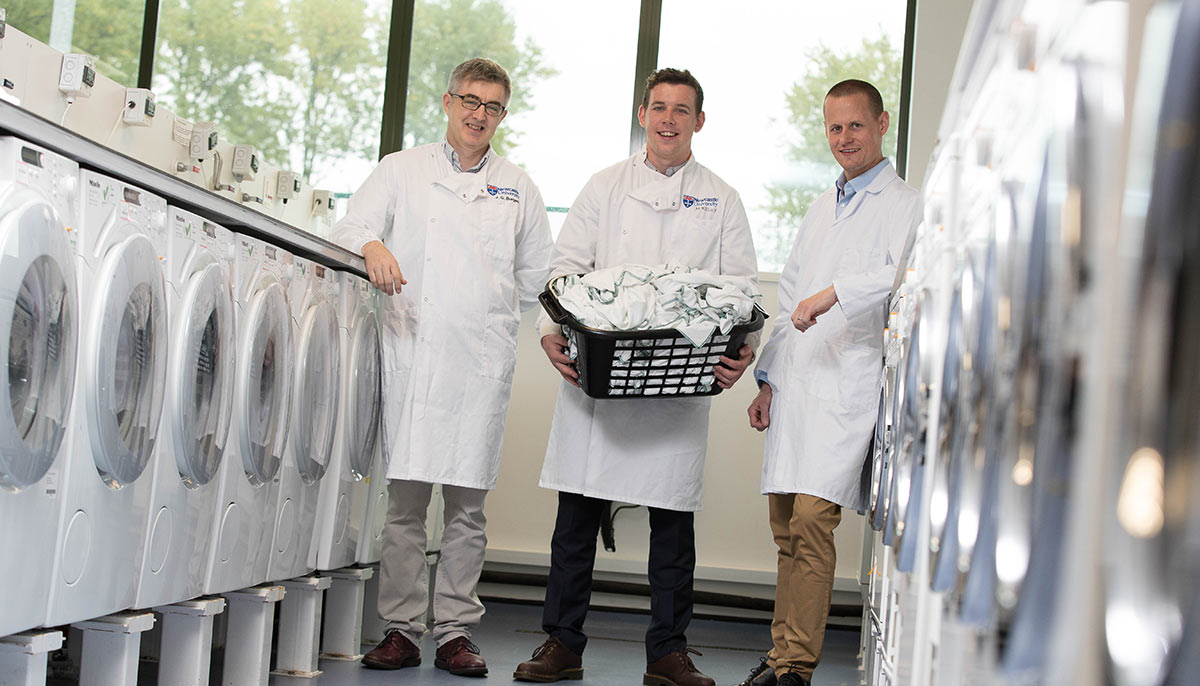Is seaweed the answer to more sustainable laundry?
26 May 2021 | By: Newcastle University | 2 min read
Seaweed might not be something you instantly think of as clean, but it holds the key to a new laundry product that lowers emissions, protects the environment and saves UK families money on household bills.
A team from Newcastle University has discovered an enzyme (NucB) which is used by bacteria to unstick themselves from seaweed. This enzyme breaks down the sticky molecules naturally present in the environment and is a powerful natural cleaner. Surprisingly, researchers have found that this enzyme can be used to better clean dirty clothes, while reducing the temperature that needs to be used, helping to make laundry more sustainable.
Working towards sustainability
Using our washing machines at the lowest possible temperature helps to cut down CO2 emissions, save money on energy bills and can even extend the life of our clothes - but consumers also want their clothes to be fresh and clean at the end of a wash.
With this in mind, the University team has worked with leading cleaning products manufacturer Procter & Gamble (P&G) to harness the power of nature and demonstrate that this discovery could be used to develop more sustainable laundry detergents that work efficiently and effectively at low temperatures.
Discovery of the enzyme
The enzyme - isolated from a marine bacterium called Bacillus licheniformis - was originally discovered by the Newcastle team in 2010, when they were researching how to clean the hulls of ships.
Grant Burgess, Professor of Marine Biotechnology at Newcastle University and lead project investigator, said:
"Newcastle has a strong ship-building heritage and this research has been taking place for over 100 years to address the problem of ships accumulating high levels of slime and other organisms on their hulls, which leads to more resistance, higher fuel consumption and can cause corrosion. To combat this, we were keen to understand how marine organisms - such as fish, dolphins and seaweed, for example - appear to have solved this fouling problem, as they are good at keeping themselves clean in the sea.
"Since seaweed was easier to catch, we decided to explore how seaweed can keep itself clean. The key was discovering that some seaweeds are actually covered in bacteria that can release cleaning compounds. While bacteria have the capacity to produce powerful adhesives to stick themselves to surfaces, they also produce an "anti-glue" - a phosphodiesterase - that can break up sticky modules.
"The big surprise was that similar glues are present on dirty clothing where they bind difficult to remove body soils and odours to the fabric. This bacterial enzyme can break down these glues, and can therefore be used to keep our clothes clean as well, when introduced to laundry detergents.
"This is a wonderful example of borrowing a cleaning idea from Mother Nature. By studying how a seaweed keeps itself clean, we can now keep our own socks clean and fresh, while at the same time protecting our environment."
Making a difference to people and the planet
Dr Michael Hall, Senior Lecturer in Chemistry at Newcastle University and project co-investigator, explained:
"While most enzymes are quite fragile and are damaged by high temperatures, this one was found to be not only extremely heat stable, but it also worked at its optimum at low temperatures, as it would in the sea.
"This means we can now achieve an improved wash on low temperatures, saving families money on their energy bills and reducing emissions. Not only that, but because this is a natural product, if it does make its way back into our water system it simply biodegrades, causing no harm to the flora or fauna in our rivers and oceans."

Find out more
To find out more about the research carried out, get in touch with the team.
